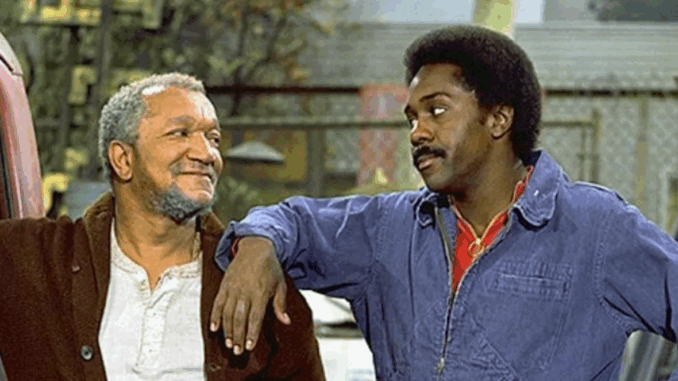
At first glance, Sanford and Son was all laughs—a cranky old man, a junkyard, and constant bickering. But scratch just beneath the surface, and you find something deeper: social commentary dressed in sitcom clothing.
Fred Sanford was more than a curmudgeon—he was a widowed, Black small-business owner raising a son in Watts, Los Angeles. In the 1970s, that setup carried weight. The show aired during a time of economic upheaval and racial tension, and it didn’t shy away from addressing race, class, and intergenerational conflict.
Episodes touched on police profiling, gentrification, healthcare inequity, and even the burden of caring for aging parents—all through the lens of humor. One moment Fred is faking a heart attack (“This is the big one!”), and the next he’s lamenting how hard it is to pay hospital bills.
For many viewers, Sanford and Son became a way to see their lives reflected on screen with dignity, even when life was hard—and that is perhaps its most powerful legacy.